Filter by

Science in the forest, science in the past
This collection brings together leading anthropologists, historians, philosophers, and artificial-intelligence researchers to discuss the sciences and mathematics used in various Eastern, Western, and Indigenous societies, both ancient and contemporary. The authors analyze prevailing assumptions about these societies and propose more faithful, sensitive analyses of their ontological views about…
- Edition
- -
- ISBN/ISSN
- 9781912808427
- Collation
- xii + 278 p
- Series Title
- -
- Call Number
- 111 GEO s

The first to be destroyed : the Jewish community of Kleczew and the beginning…
The Jewish community of the city of Kleczew came into existence in the sixteenth century. It remained large and strong throughout the next four hundred years, and in the eighteenth and nineteenth centuries it constituted 40-60% of the total population. The German army entered Kleczew on September 15, 1939, shortly after the outbreak of World War II. The communities of Kleczew and the vicinity w…
- Edition
- -
- ISBN/ISSN
- 9781618112859
- Collation
- xxvii + 622 p
- Series Title
- -
- Call Number
- 940.531844 WME f
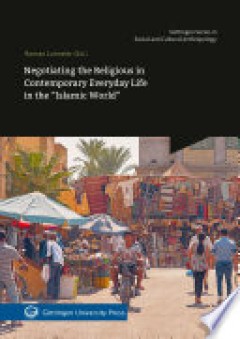
Negotiating the religious in contemporary everyday life in the "Islamic world"
The contributions to the present volume show that the countries that are often presented in the literature as forming part of a stereotypical and seemingly monolithic “Islamic world” in fact represent considerable diversity. From Iran to Senegal, we encounter a vast array of social and religious structures, historical trajectories, political regimes and relative positions of societies and i…
- Edition
- -
- ISBN/ISSN
- 9783863954932
- Collation
- 261p
- Series Title
- -
- Call Number
- 390 LOI
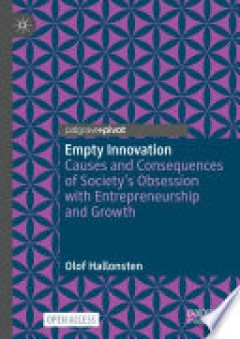
Empty innovation : causes and consequences of society's obsession with intrep…
Innovation is generally viewed as something inherently good, a source of progress and prosperity in our society. But innovation can also have negative, unintended, and wasteful effects, if policies are misdirected and organizations pursue innovation to look good and convey a message, rather than to actually achieve improvements of technologies, services, and products. This book makes the case t…
- Edition
- 1
- ISBN/ISSN
- 9783031314797
- Collation
- v, 120p
- Series Title
- -
- Call Number
- 352 OLO e

Iberian world empires and the globalization of Europe 1415–1668
This open access book analyses Iberian expansion by using knowledge accumulated in recent years to test some of the most important theories regarding Europe’s economic development. Adopting a comparative perspective, it considers the impact of early globalization on Iberian and Western European institutions, social development and political economies. In spite of globalization’s minor impor…
- Edition
- 1
- ISBN/ISSN
- 9789811308338
- Collation
- xxvi, 520p; ill
- Series Title
- Palgrave Studies in Comparative Global History
- Call Number
- BAR i
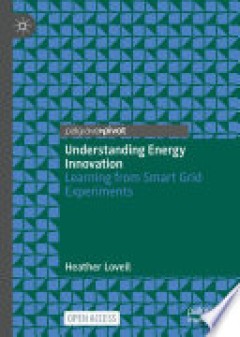
Understanding Energy Innovation : Learning from Smart Grid Experiments
This open access book uses smart grids to explore and better understand energy innovation, from a social science perspective. Understanding Energy Innovation has four core themes—networks, nodes, narratives and nostalgia—and each chapter tackles a theme, using case studies from Australia and Europe. Energy innovation is currently occurring at a rapid pace, in response to a host of problems …
- Edition
- -
- ISBN/ISSN
- 9789811662539
- Collation
- 101p
- Series Title
- -
- Call Number
- 621.31 LOV
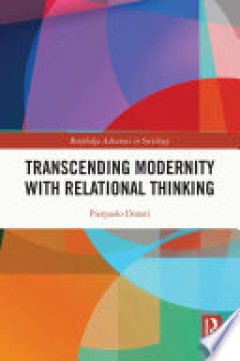
Transcending Modernity with Relational Thinking
This book explores the ways in which social relations are profoundly changing modern society, arguing that, constituting a reality of their own, social relations will ultimately lead to a new form of society: an aftermodern or relational society. Drawing on the thought of Simmel, it extends the idea that society consists essentially of social relations, in order to make sense of the operation o…
- Edition
- -
- ISBN/ISSN
- 9781000382679
- Collation
- 262p
- Series Title
- Routledge Advances in Sociology
- Call Number
- 302 DON
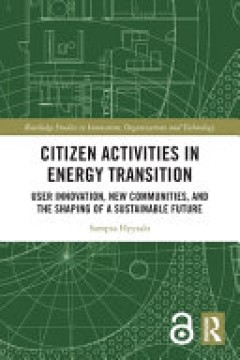
Citizen activities in energy transition : user innovation, new communities, a…
This book addresses the rapidly changing citizen roles in innovation, technology adoption, intermediation, market creation, and legitimacy building for low-carbon solutions. It links research in innovation studies, sustainability transitions, and science and technology studies, and builds a new approach for the study of user contributions to innovation and sociotechnical change. Citizen Activit…
- Edition
- 8
- ISBN/ISSN
- 9780367680251
- Collation
- xii, 190 p
- Series Title
- Routledge Studies in Innovation, Organizations and Technology,
- Call Number
- 333.794 HYY c
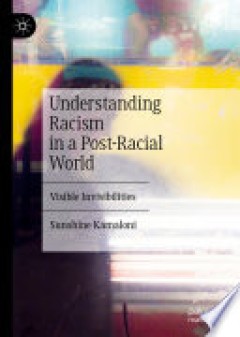
Understanding racism in a post-racial world : visible invisibilities
This book addresses the question: how can we talk about race in a world that is considered post-racial, a world where race doesn’t exist? Kamaloni engages with the tradition of everyday racism and traces the process of racialisation through the interaction of bodies in space. Exploring the embodied experience exposes the idea of post-racialism as a response to continued cultural anxieties abo…
- Edition
- 1
- ISBN/ISSN
- 9783030109851
- Collation
- X, 221p
- Series Title
- -
- Call Number
- 305.8 SUN u

Dimensione didattica, tecnologica e organizzativa. La costruzione del process…
Volume pertama dari proyek editorial dibagi menjadi dua karya: ini didedikasikan untuk hubungan antara dimensi metodologis-didaktik, teknologi dan organisasi dalam proses inovasi sekolah; yang kedua didedikasikan untuk guru pendidikan inklusif dan peran teknologi dalam layanan penilaian keterampilan dan bimbingan karir. Tujuan dari kedua karya tersebut sama: mengumpulkan refleksi dan mendukung …
- Edition
- 2
- ISBN/ISSN
- 1030823026
- Collation
- 226 p
- Series Title
- Media e tecnologie per la didattica - Open Access, 1
- Call Number
- 370
 Computer Science, Information & General Works
Computer Science, Information & General Works  Philosophy & Psychology
Philosophy & Psychology  Religion
Religion  Social Sciences
Social Sciences  Language
Language  Pure Science
Pure Science  Applied Sciences
Applied Sciences  Art & Recreation
Art & Recreation  Literature
Literature  History & Geography
History & Geography